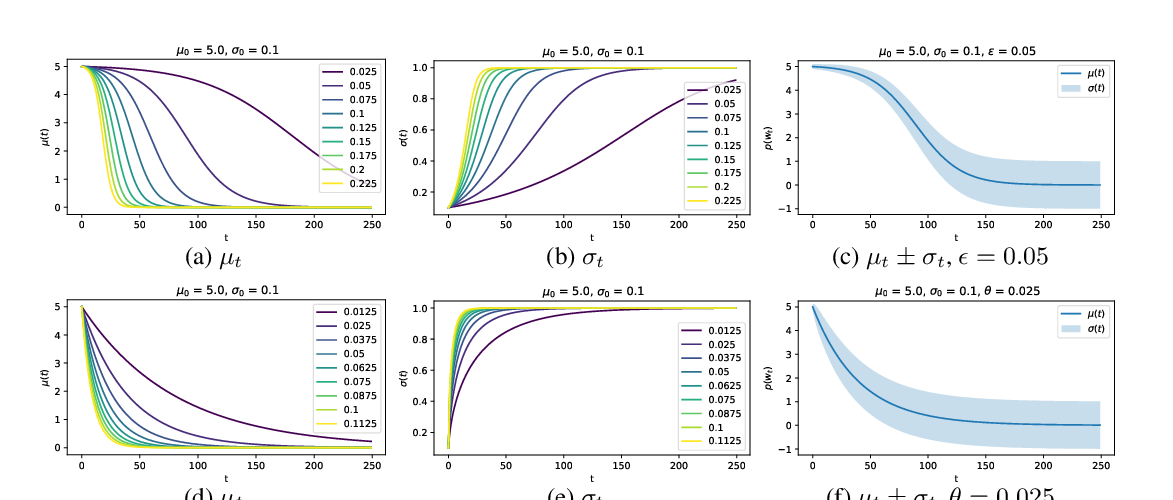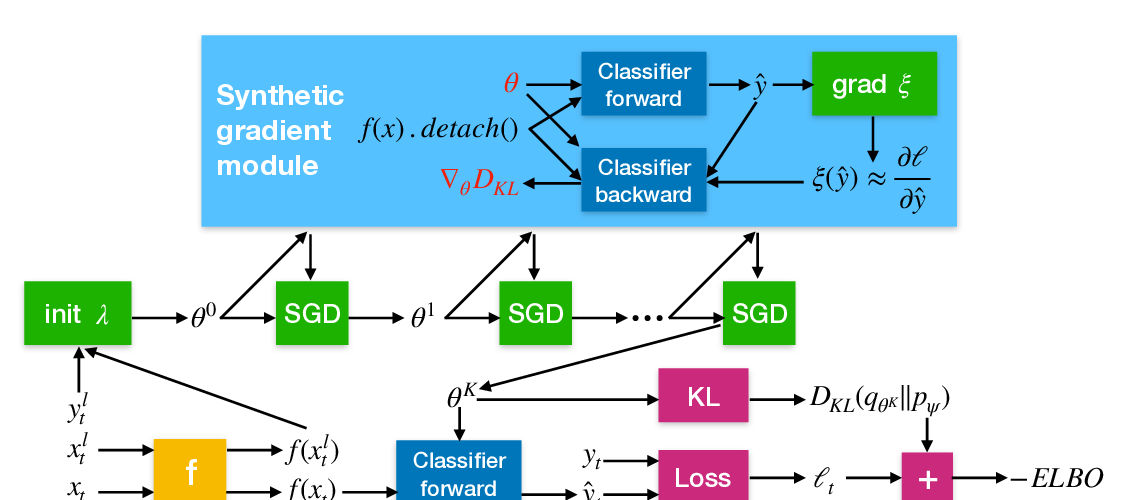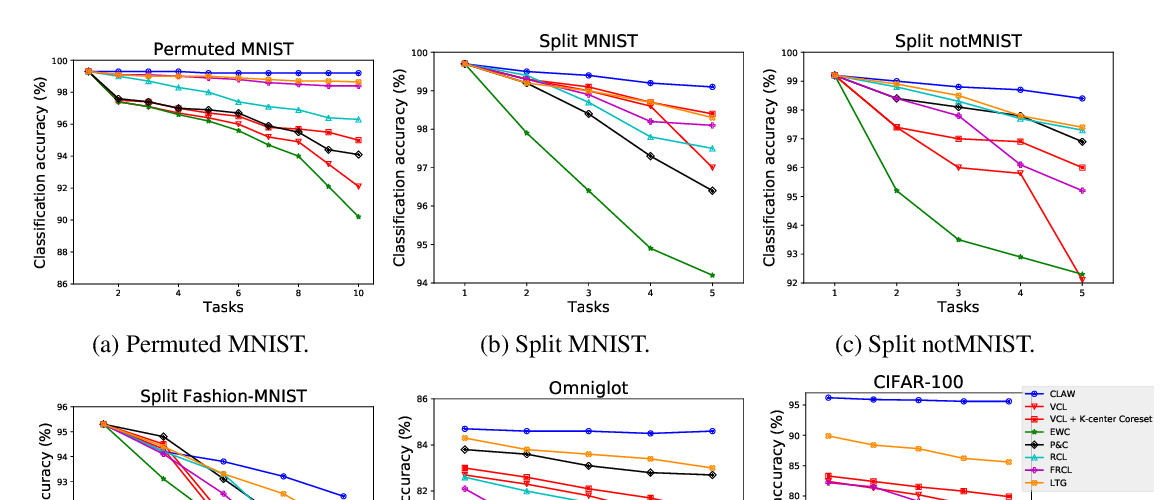Abstract:
We introduce a framework for Continual Learning (CL) based on Bayesian inference over the function space rather than the parameters of a deep neural network. This method, referred to as functional regularisation for Continual Learning, avoids forgetting a previous task by constructing and memorising an approximate posterior belief over the underlying task-specific function. To achieve this we rely on a Gaussian process obtained by treating the weights of the last layer of a neural network as random and Gaussian distributed. Then, the training algorithm sequentially encounters tasks and constructs posterior beliefs over the task-specific functions by using inducing point sparse Gaussian process methods. At each step a new task is first learnt and then a summary is constructed consisting of (i) inducing inputs – a fixed-size subset of the task inputs selected such that it optimally represents the task – and (ii) a posterior distribution over the function values at these inputs. This summary then regularises learning of future tasks, through Kullback-Leibler regularisation terms. Our method thus unites approaches focused on (pseudo-)rehearsal with those derived from a sequential Bayesian inference perspective in a principled way, leading to strong results on accepted benchmarks.


